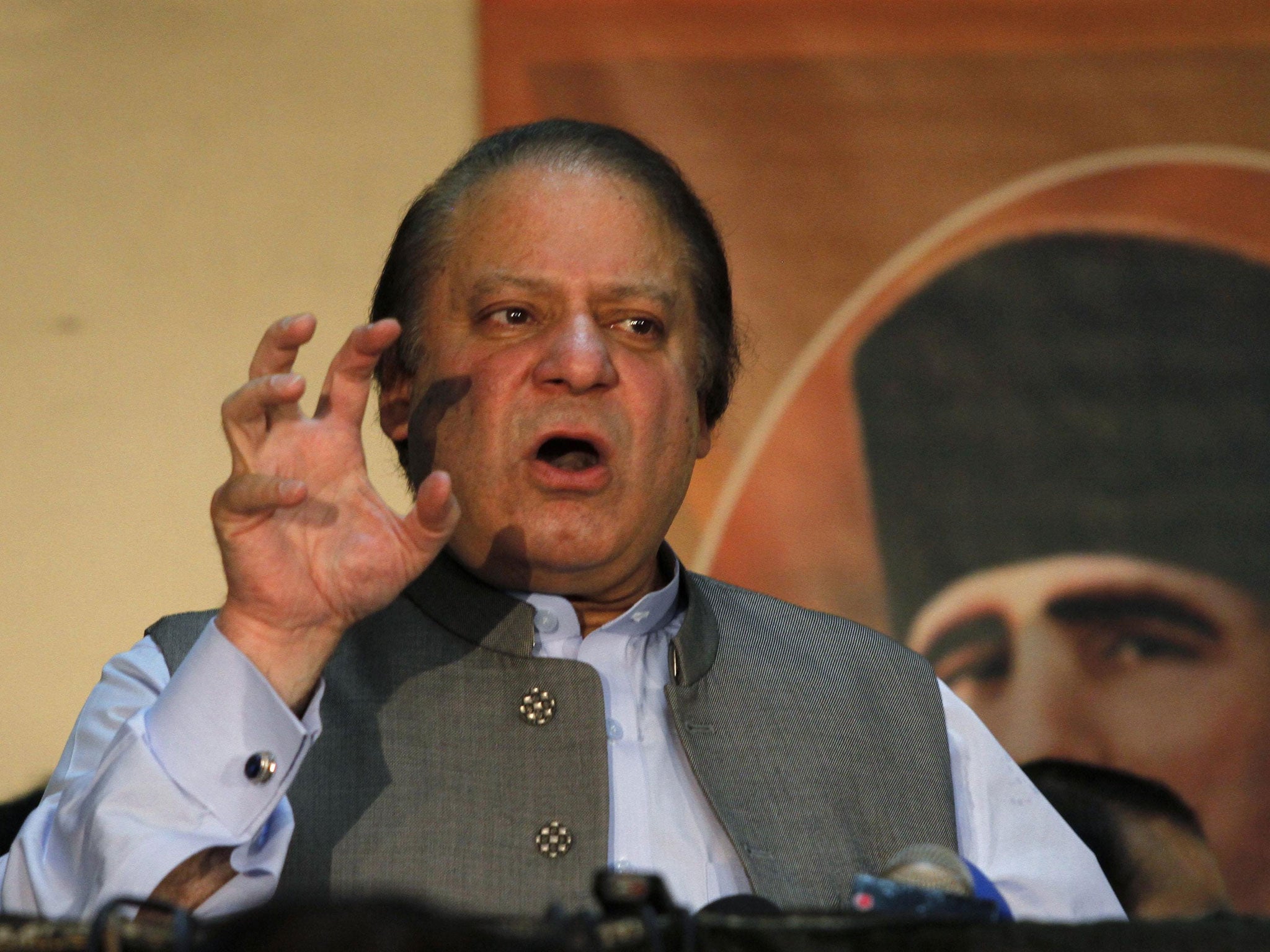Pakistani jets kill up to 40 'Taliban militants' in North Waziristan
Strike is a blow to peace talks between Nawaz Sharif's government and Taliban

Up to 40 alleged militants have been killed by Pakistani jets which bombed a series of hideouts in the far north of the country after peace talks with the government waivered
Reports said the jets pounded the targets in North Waziristan on Wednesday night after the strike was authorised by Prime Minister Nawaz Sharif.
“The prime minister wants to resolve these issues without bloodshed but if the Taliban continues killing people then we will be left with no choice but to keep our citizens safe from terrorism through any means possible,” Mr Sharif’s spokesman, Pervez Rashid, had said in televised comments on Wednesday evening.
Mr Sharif, who secured an election victory last spring following a campaign in which he said he wanted to seek talks with the Taliban as part of a broader settlement, had been pursuing dialogue through a panel of representatives.
But talks floundered this week when a Taliban faction based in the Mohmand tribal area announced that it had executed 23 soldiers in revenge for the killing of its fighters by the security forces.
“After restraining the army for three days, the prime minister himself authorised the strikes last night,” an unidentified government official told Reuters. “It was the only option to teach the Taliban a lesson.”
What remains unclear is whether this week’s attack on targets in the Mir Ali, Shawal and Datta Khel districts marks the start of a broader, longer offensive against the Taliban in North Waziristan. There was a similar strike by jets in January, the first publicly acknowledged operation in that specific area for years.
It has long been said that Pakistan’s powerful military has been wary of opening up operations against many of the cross-border militants in North Waziristan because of their long association with the country’s military-run intelligence agencies and their potential as “strategic assets”.
Yet reports said the militants targeted on Wednesday night were said to have been involved in a February 13 attack on a police bus in Karachi that killed 13 officers and injured at least 57 others. The army said this week that more than 100 soldiers had been killed by the Taliban in the last five months.
Professor Mohammad Ibrahim, one of those called upon by the Taliban to represent it in talks with the government, condemned the operation in North Waziristan. Meanwhile, the head of the Taliban faction in Mohmand, Umar Khorasani, told reporters that “every action has a reaction”.
Gen Talat Masood, an Islamabad-based military analyst and a former senior army officer, said he believed the strikes had been carried out in retaliation for a series of militant attacks on military targets. He said he believed the strikes were a one-off but that the army was poised for a sustained operation if needed.
“I think the militants were perhaps under the wrong impression because the government was leaning so far backwards to try and find a way for talks,” he said. “I hope they do not make that mistake again.”
Subscribe to Independent Premium to bookmark this article
Want to bookmark your favourite articles and stories to read or reference later? Start your Independent Premium subscription today.

Join our commenting forum
Join thought-provoking conversations, follow other Independent readers and see their replies